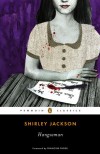That day.

"We just kept going down. Dark, light, dark again. I feel like I'm still on the stairs. I wanted my mother. If I live to be a hundred I'll still be on the stairs."
Don DeLillo isn't for everyone. His often unusual dialogue, sometimes hazy shifts in point of view and time can set a casual reader on edge. Those who don't mind or even enjoy his approach are rewarded with poetic prose that manages to be direct, with an ambiguous tone that often leads to a dreamy effect.
One of the characters, Lianne, runs a therapy group for Alzheimer's patients, encouraging them to keep journals of their memories. They write about September 11th, their voices intersecting:
"I am closer to God than ever, am closer, will be closer, shall be closer.
Ashes and bones. That's what's left of God's plan.
But when the towers fell, Omar wrote.
I keep hearing they were holding hands when they jumped."
DeLillo doesn't just focus on the effects of September 11th told through the voices of the survivors and their families. He also gives us a look into the lives of those who carried out the plan:
"The world changes first in the mind of the man who wants to change it. The time is coming, our truth, our shame, and each man becomes the other, and the other still another, and then there is no separation.
There was the feeling of lost history. They were too long in isolation. This is what they talked about, being crowded out by other cultures, other futures, the all-enfolding will of capital markets and foreign policies."
DeLillo shows us moments of doubt in the terrorist's mind (he's named Hammad, and seems to be a fictional character). He wonders "does a man have to kill himself in order to accomplish something in the world...does a man have to kill himself in order to count for something, be someone, find the way?"
He asks a fellow would-be hijacker, Amir, about those who will die, and Amir's reply is chilling:
"The others exist only to the degree that they fill the role we have designed for them...[t]hose who will die have no claim to their lives outside the useful fact of their dying."
It's a haunting novel, but is also often confusing, shifting timelines and viewpoints without notice. This might be intentional to invoke the confusion of September 11th, I'm not sure. It's not an easy read, but those looking to read fiction based on that tragic day should give this one a look.
 7
7




